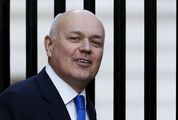Health scheme implies ruinous tax rise
by Martin Van Staden,
2016-01-04 06:12:21.0
THE Department of Health released its latest white paper on National Health Insurance (NHI) last month, introducing the scheme as one to "pool funds to provide quality, affordable … health services … irrespective of … socioeconomic status".
It says the NHI is in line with the constitutional mandate of the government "to take reasonable legislative and other measures, within its available resources, to achieve … the right to access to healthcare".
It is unfortunate, then, that not only will this policy not achieve its stated goals, but it will lead to ruinous unintended consequences.
Moreover, it is beyond belief that the government thinks it can fund this new monumental expense. The Davis tax committee acknowledged last August that to implement the NHI, "the tax to domestic product (GDP) ratio will need to rise quite significantly". In the report, the department acknowledges the government’s preference for a broad tax base and low tax rate, rather than a narrow tax base and high tax rate. Economic growth, it correctly notes, is a prerequisite for the expansion of the tax base. SA has an extremely small tax base. Only 2% of the South African population is estimated to pay more than half of income tax. The economy grew 2% last year, but the tax to gross GDP ratio increased to 25.7% from 24.9%.
The NHI white paper notes that "productive public expenditure" will encourage economic growth, ignoring that the government has customarily mismanaged funds and resources, especially within the government health infrastructure.
Rising expectations and the government’s willingness to continuously spend more, will place an impossible burden on taxpayers. The recent leadership fiasco within the finance ministry is no consolation.
The Free Market Foundation has recommended that the government concentrate the little revenue it receives from the taxpayer on the poor, but attempting to provide "free healthcare for all" would inevitably be disastrous.
Instead, the government must finance the medical expenses of the poor while allowing them the choice of where to receive treatment.
That choice should include private hospitals, which have consistently provided better quality service and treatment than government-run hospitals due to the profit motive of enterprising individual developers and medical practitioners.
Jasson Urbach of the foundation’s health policy unit says South Africans who can afford healthcare should be left "alone to seek out the cover that would suit them best".
It is a moral question of whether the government does or should have the right to micromanage the healthcare-related choices made by citizens. If given the option, most South Africans would prefer to use private medical facilities.
Nationalised healthcare would kill competition in the medical marketplace and render private healthcare unaffordable.
Considering the appalling performance of the state health infrastructure, a "universal healthcare" policy would destroy the private sector. Given this state of affairs, medical professionals will leave SA at a far greater rate than they have been doing and the public will suffer the tragic consequences of an overzealous government.
A far more preferable course of action for the government would be to liberalise the laws and regulations relating to the medical profession and industry and allow the price calculation function of the competitive marketplace to keep costs low. This would also contribute substantially to keeping highly skilled medical professionals in the country.
A voucher programme to cover the expenses of indigent persons at private hospitals and clinics would also be more beneficial to South Africans, given the higher quality of medical care they would receive — and it would keep us off the path back to apartheid-esque paternal statism.
• Van Staden is a law student at the University of Pretoria and the Southern African regional director of Students For Liberty
THE Department of Health released its latest white paper on National Health Insurance (NHI) last month, introducing the scheme as one to "pool funds to provide quality, affordable … health services … irrespective of … socioeconomic status".
It says the NHI is in line with the constitutional mandate of the government "to take reasonable legislative and other measures, within its available resources, to achieve … the right to access to healthcare".
It is unfortunate, then, that not only will this policy not achieve its stated goals, but it will lead to ruinous unintended consequences.
Moreover, it is beyond belief that the government thinks it can fund this new monumental expense. The Davis tax committee acknowledged last August that to implement the NHI, "the tax to domestic product (GDP) ratio will need to rise quite significantly". In the report, the department acknowledges the government’s preference for a broad tax base and low tax rate, rather than a narrow tax base and high tax rate. Economic growth, it correctly notes, is a prerequisite for the expansion of the tax base. SA has an extremely small tax base. Only 2% of the South African population is estimated to pay more than half of income tax. The economy grew 2% last year, but the tax to gross GDP ratio increased to 25.7% from 24.9%.
The NHI white paper notes that "productive public expenditure" will encourage economic growth, ignoring that the government has customarily mismanaged funds and resources, especially within the government health infrastructure.
Rising expectations and the government’s willingness to continuously spend more, will place an impossible burden on taxpayers. The recent leadership fiasco within the finance ministry is no consolation.
The Free Market Foundation has recommended that the government concentrate the little revenue it receives from the taxpayer on the poor, but attempting to provide "free healthcare for all" would inevitably be disastrous.
Instead, the government must finance the medical expenses of the poor while allowing them the choice of where to receive treatment.
That choice should include private hospitals, which have consistently provided better quality service and treatment than government-run hospitals due to the profit motive of enterprising individual developers and medical practitioners.
Jasson Urbach of the foundation’s health policy unit says South Africans who can afford healthcare should be left "alone to seek out the cover that would suit them best".
It is a moral question of whether the government does or should have the right to micromanage the healthcare-related choices made by citizens. If given the option, most South Africans would prefer to use private medical facilities.
Nationalised healthcare would kill competition in the medical marketplace and render private healthcare unaffordable.
Considering the appalling performance of the state health infrastructure, a "universal healthcare" policy would destroy the private sector. Given this state of affairs, medical professionals will leave SA at a far greater rate than they have been doing and the public will suffer the tragic consequences of an overzealous government.
A far more preferable course of action for the government would be to liberalise the laws and regulations relating to the medical profession and industry and allow the price calculation function of the competitive marketplace to keep costs low. This would also contribute substantially to keeping highly skilled medical professionals in the country.
A voucher programme to cover the expenses of indigent persons at private hospitals and clinics would also be more beneficial to South Africans, given the higher quality of medical care they would receive — and it would keep us off the path back to apartheid-esque paternal statism.
• Van Staden is a law student at the University of Pretoria and the Southern African regional director of Students For Liberty























Change: 1.19%
Change: 1.36%
Change: 2.19%
Change: 1.49%
Change: -0.77%
Data supplied by Profile Data
Change: -0.19%
Change: 0.69%
Change: 1.19%
Change: 0.00%
Change: 0.44%
Data supplied by Profile Data
Change: 0.62%
Change: 0.61%
Change: 0.23%
Change: 0.52%
Change: 0.12%
Data supplied by Profile Data
Change: -0.21%
Change: -1.22%
Change: -0.69%
Change: -0.51%
Change: 0.07%
Data supplied by Profile Data